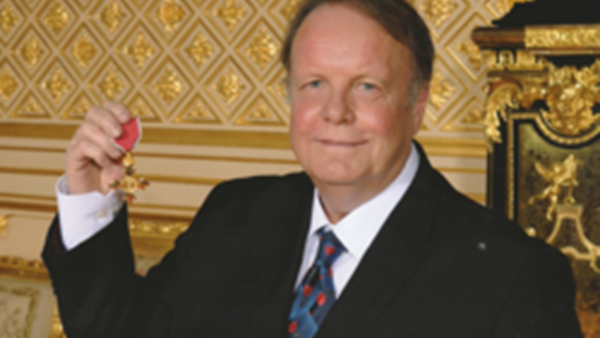Ahead of the final of the British Council’s ELTons Awards in November 2022, we spoke to ELTons finalist, Sirhajwan Idek, the head of the Dau Dau project, to discuss how it is progressing and what the future has in store.
The Dau Dau project, based in Sabah, Malaysia, won the 2021 Simon Greenall Award, a joint venture between IH World, Macmillan Education and International House London. The award is aimed at helping new or existing projects which bring people together through learning English.
The Dau Dau project is an inspiring programme whose goal is to help students become writers, performers and artists using different mediums relating to the indigenous cultures in Sabah, Malaysia. It uses the medium of English and incorporates ethnic cultures, languages, and contemporary issues, bringing people together through learning English. One of their core values is promoting inclusivity, their students with learning disabilities are to get involved with activities such as staging a sign language poetry performance by students with hearing impairment.
Sirhajwan Idek oversees the implementation of the project in the classroom and extra-curricular activities. Sirhajwan writes stories and poems, and mentors the students in their writing. He told us in more detail about how students benefit from the innovative approach to learning.
IHWO speaks to Sirhajwan Idek
IHWO: How does the Dau Dau project help students develop their English skills differently from more traditional classroom teaching?
SI: It gives students practical reasons to learn to write and this makes the learning more meaningful and authentic. The process involves several writing steps mainly prewriting, drafting, revision, proofreading and finally publishing or recording it. Hence, the students learn to practice their writing skills.
IHWO: How do students respond to learning English through elements of their own culture?
SI: They love it! It helps them to research their ethnic origins and history which makes them feel prouder of their identities. Some of them even interviewed their grandparents to find out more about legends and myths related to their ethnicities.
IHWO: Why do you think discovering more about their cultural backgrounds is helpful to students?
SI: Since the students are not native speakers and they come from various ethnic backgrounds with their own languages, this activity can help to bridge the target language, English, with their own ethnic identities. This can be made possible if the students have great understanding of their own ethnicities and traditions in a way that they are able to universalise it through arts in which the medium is English language.
IHWO: Do you think incorporating dance and performance art and the physicality of both those mediums change students’ attitudes to learning in general and learning a language?
SI: It offers them a variety of options on how they would like to explore their artistic talents through different formats and genres, and this is consistent with the different learning styles that include kinesthetic, auditory and visual.
IHWO: Lots of the Dau Dau project’s students’ performances are recorded in beautiful settings, are the local natural surroundings a source of inspiration to students?
SI: Yes it is! It helps them to highlight individuality since this allows them to personalize their performance videos. It also makes their work relatable to their peers.
IHWO: How has the project grown over the past year? How has winning the Simon Greenall award helped the project to progress?
SI: The project has impacted more students and teachers directly through our guidance as well as through the webinars that we did. Winning the award helped us to gain visibility as we were able to promote our work through mainstream media and the recognition also intrigued many teachers to learn more about the project. This enabled us to replicate and scale up the project across schools especially in Sabah.
IHWO: Do you have any exciting plans for the future?
SI: We have been collaborating with some non-government organizations (NGOs) like KL Shakespeare Players in putting up theatrical performances for school students. We plan to expand this type of network so we can venture out into multiple platforms to promote folktales that are not well-known to the public in the effort to raise public awareness to preserve their cultural heritage.
IHWO: What would it mean to you to win at the ELTons?
SI: Winning the award will be a form of recognition for our students' effort whom I must credit for their passion, dedication and creativity to produce artistic or written works that have earned prizes at art festivals or have been published in literary magazines. They also have made national headlines for their works which received positive responses from the community.
The Dau Dau project has been selected as a finalist for the Local Innovation category of the 2022 ELTons. The awards celebrate the most original courses, publications, projects, apps and platforms, and more, which are finding new ways to help English language learners and teachers around the world achieve their goals. Their achievement is a real testament to the innovative thinking of the project’s leaders and the dedication of the students.
We wish the team the best of luck for the awards and for the exciting future ahead of them.
